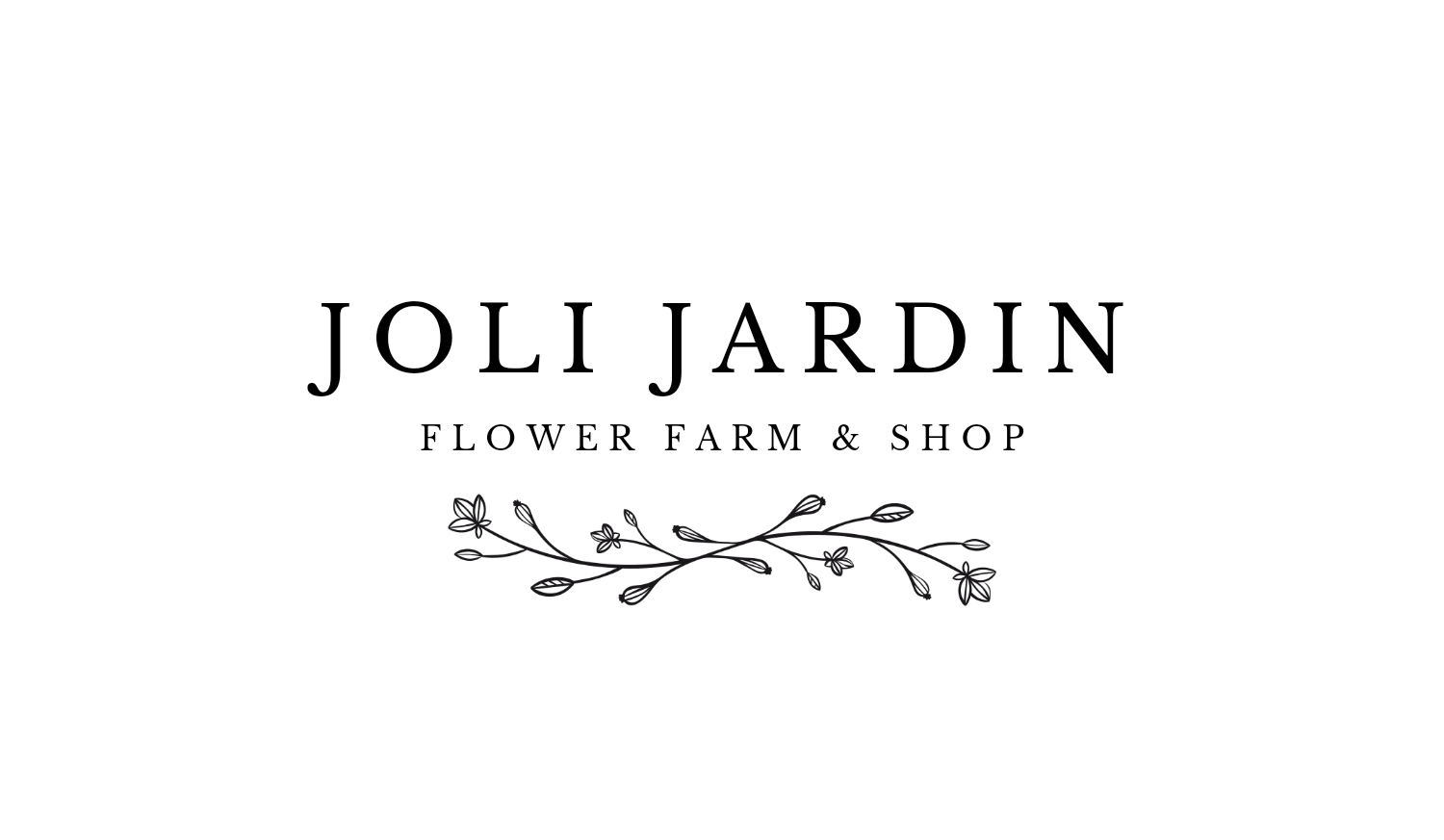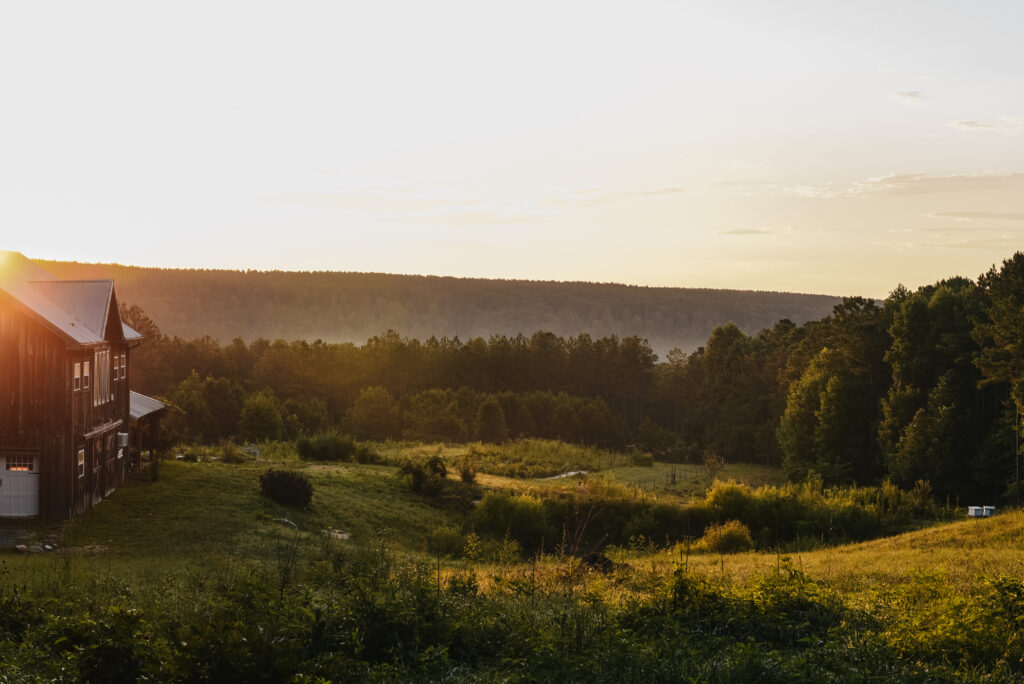
Happy 6th birthday to Joli Jardin Farm!!! No matter the season, its beauty brings us incomparable joy. Creating a farm that is biodiverse and planting flowers sustainably isn’t always easy by any means but is most certainly always worth it when the process proves itself beautiful over and over again. For all of you, our sincerest gratitude every day but especially today… Thank you for caring about our farm and supporting ethically grown flowers. We’d love to take you along our reflection over the past 6 years.
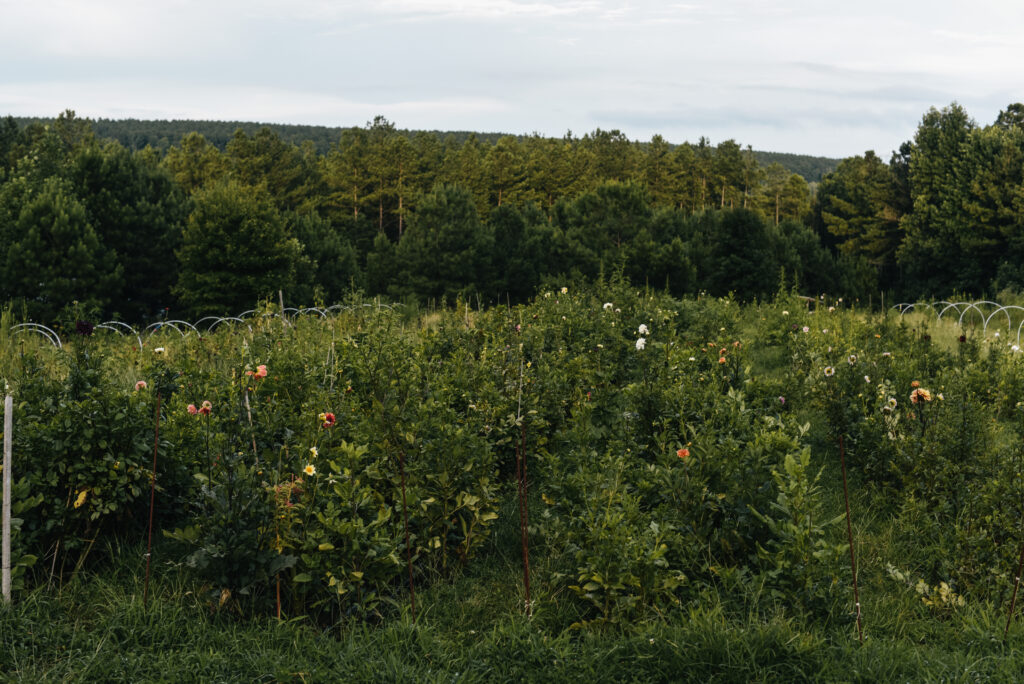
A biodiverse farm means we focus on the land as a whole and everything living in it– the plants, insects, and animals. We don’t spray chemicals or pesticides on our flowers, as this is not only harmful to humans but animals and insects too. In order to feed the flowers what they need to grow, manure from our animals is used as compost. Other practices include covering crops, crop rotation, worm composting, releasing beneficial insects, and raising pollinators. By encouraging a healthy ecosystem, harmful attributes also naturally stay away such as bugs and diseased crops. This way of farming is sustainablity at its core. Our land stays healthy for the long haul, and in return, our flowers grow happily. During the beginning stages of our farm, wildlife was minimal, invasive plants and bugs (mosquitos!) crept in, and the soil was so compacted we broke our first plow on the tractor. The land has evolved in beautifully healthy ways. We have so many birds, butterflies, and other wildlife. It makes me very happy to see all of the growth.






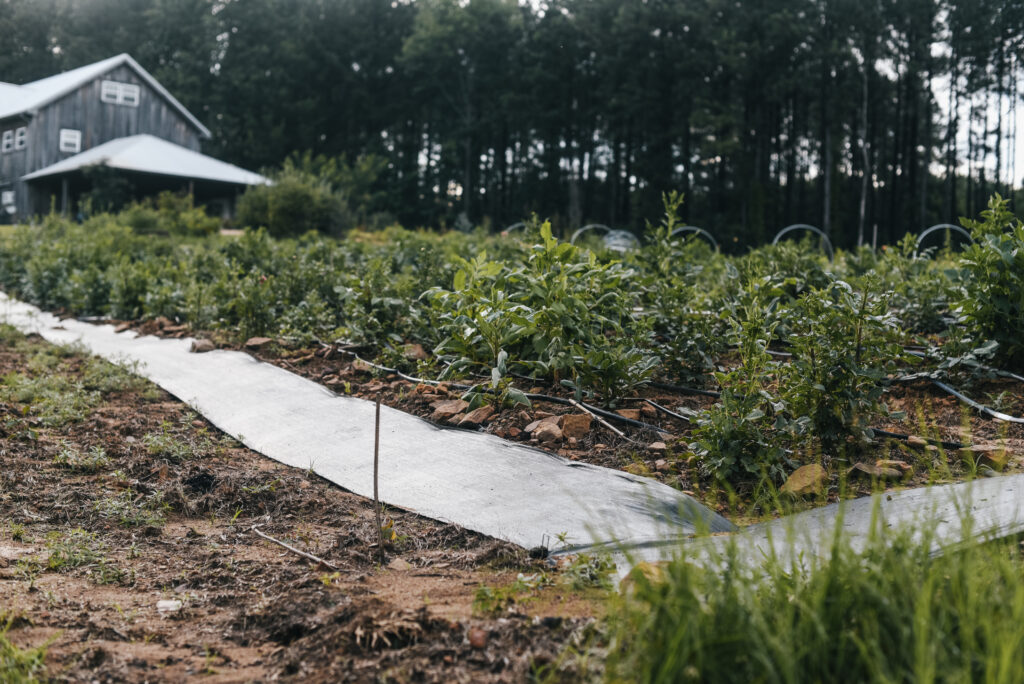
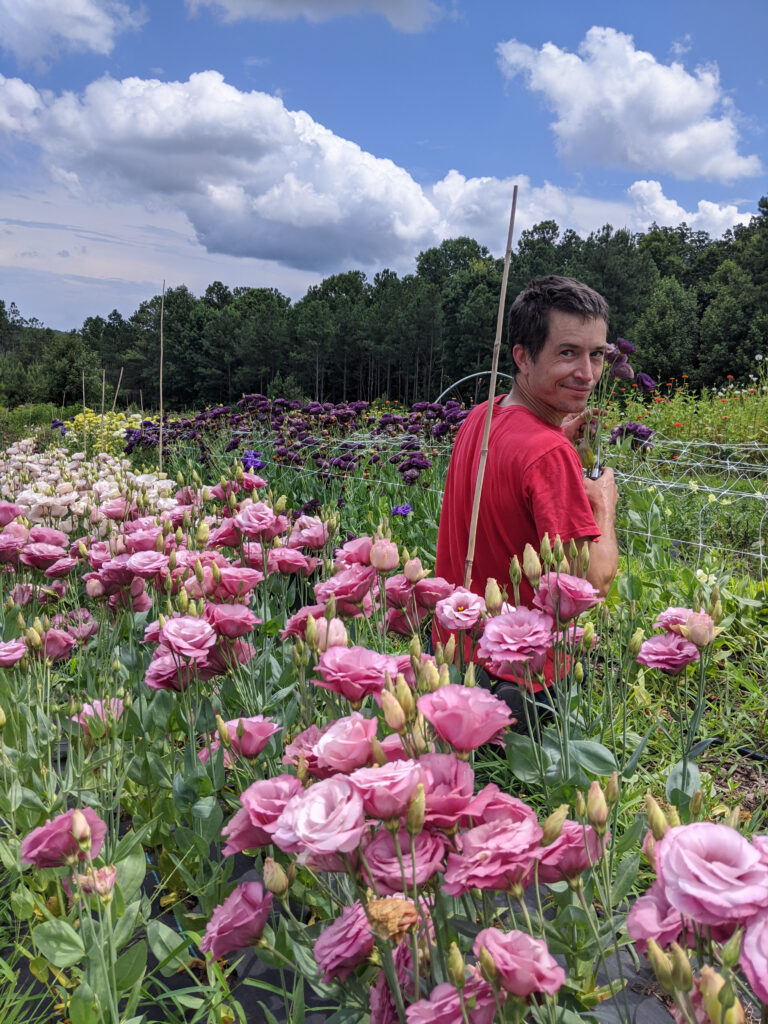
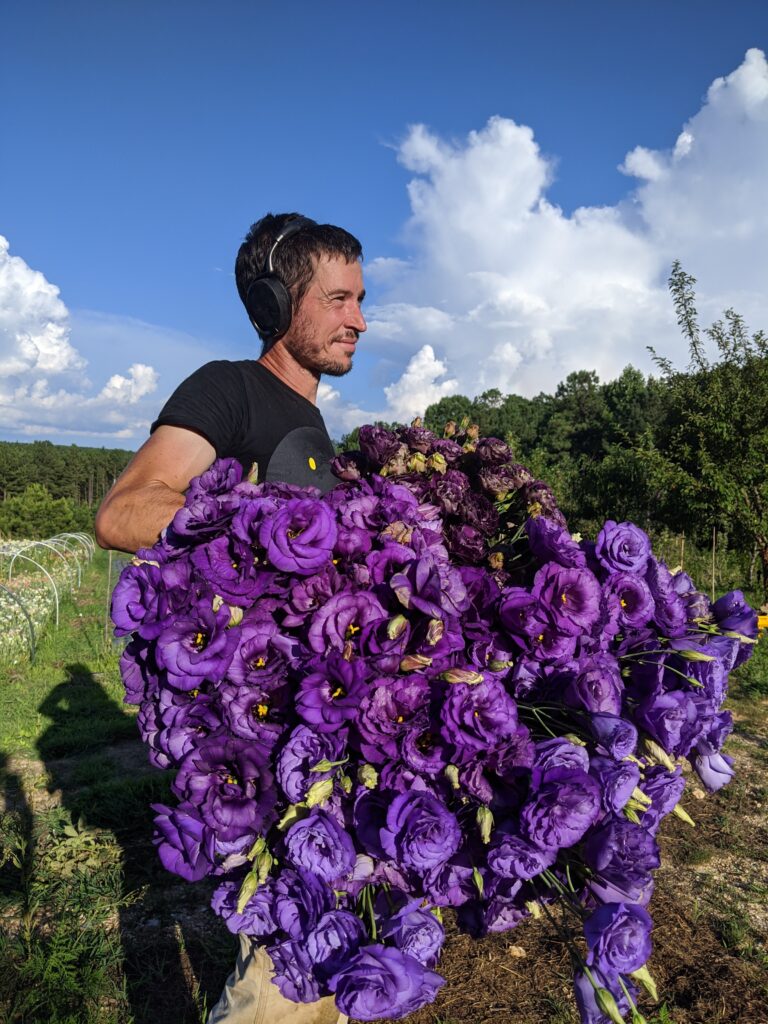
I think people picture harvesting fields full of beautiful flowers, and that is part of it, but a majority of our time is spent dripping sweat onto our landscape fabric. We spend a significant amount of time weeding, moving earth, maintaining gardens and preparing beds for the next season. Flower farming also doesn’t stop when the weather is good to work outside. We are left grudging through cold temperatures, rain, and high heat. While we certainly value being outside, some days are plain tough when the weather isn’t cooperating.
Another challenge we often face is learning from our failures. Similar to uncontrollable weather, as much as we always try to prevent things going wrong, one little mistake can ruin hours of work. If a tray of seedlings gets missed during watering, it can dry out and kill 100s of tiny plant babies. A surprise frost can knock out an entire field of new blooms if we don’t prepare mindfully. Sometimes new bugs and seeds come in loads of compost or mulch if we have to source it from another location. Confronting mistakes and coming up with solutions is challenging and frustrating, but ultimately makes us better at what we do.
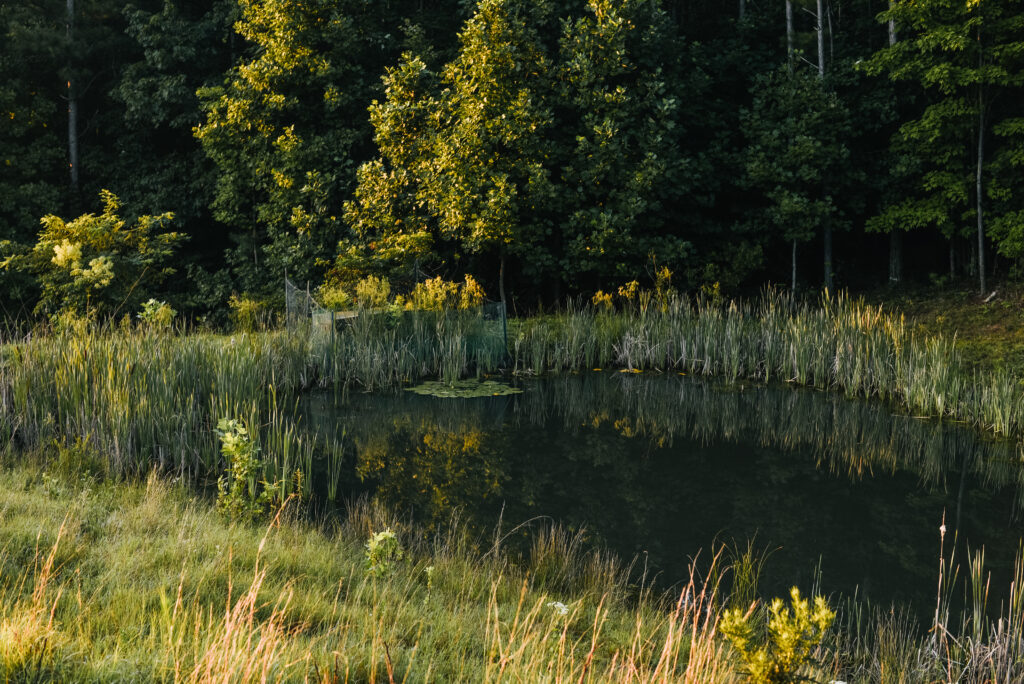



The most rewarding parts of flower farming though? Being a part of the process and valuing the work we, and the other local farmers we buy from, have put into the flowers from seed to design. This honor is fulfilling and heartwarming in a way I can’t quite describe. We created this. Knowing our blooms aren’t covered in harsh chemicals like flowers from grocery stores feels right in ours hearts because we are providing a superior product.
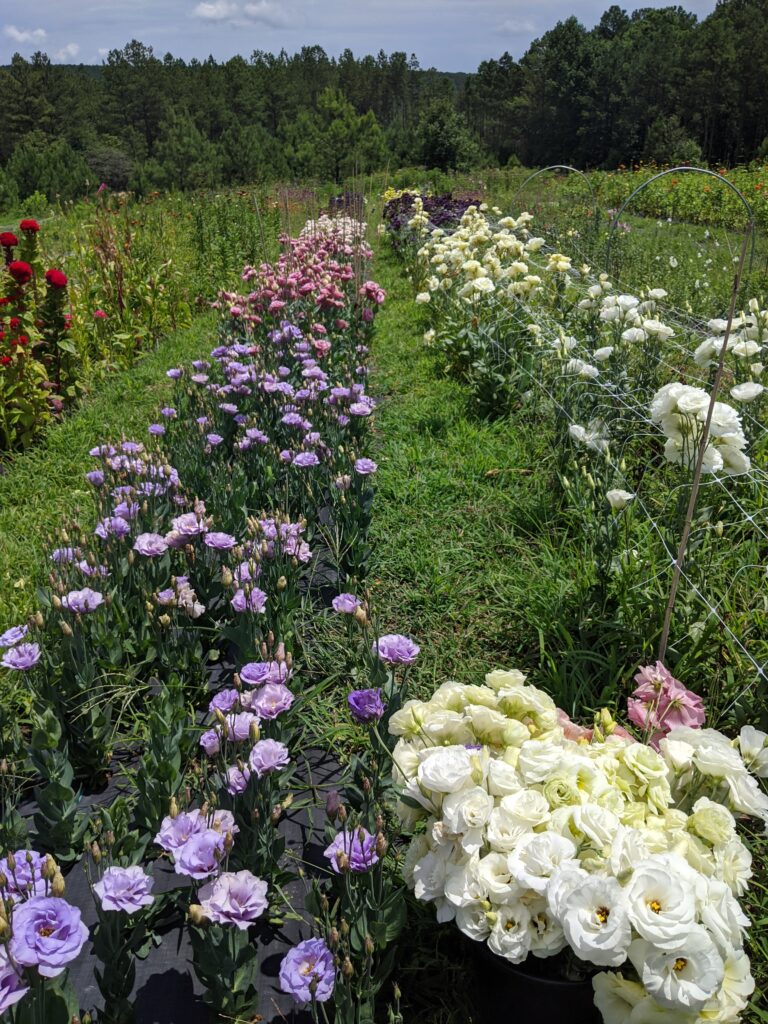
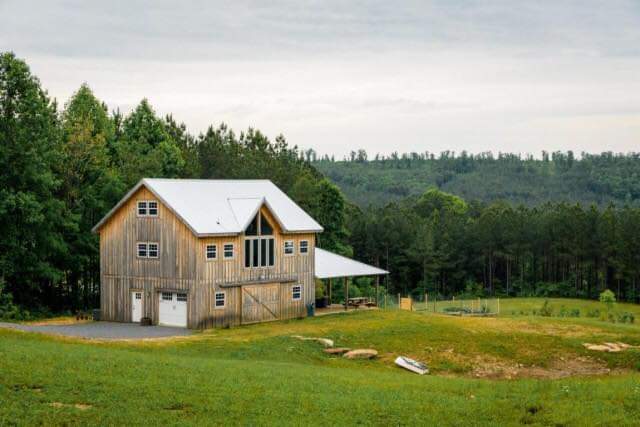
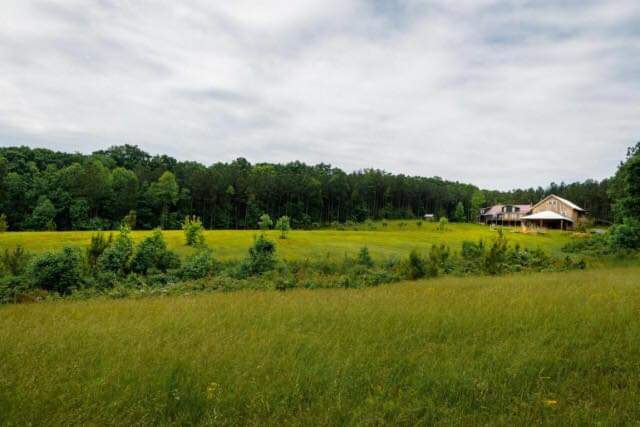
It is so crazy how much the farm has changed in the past six years. As I mentioned above, our soil has become much happier. Truly it is our biggest change and the most essential component to a successful farm. Our land was previously logged twice, and it has not been easy getting turning it into what it is today. I am happy we are still here enjoying farming, that we are profitable, and that we have the best friends and customers who support sustainable flowers.
(Erin) I’ve only been on the farms for 4 years and the difference is astounding. We’ve expanded the fields, built structures and enclosures to house the plants and animals, and gradually manipulated the mountain landscape to be more suitable for our growing purposes. So, in return, we can leave it a little better than we found it.



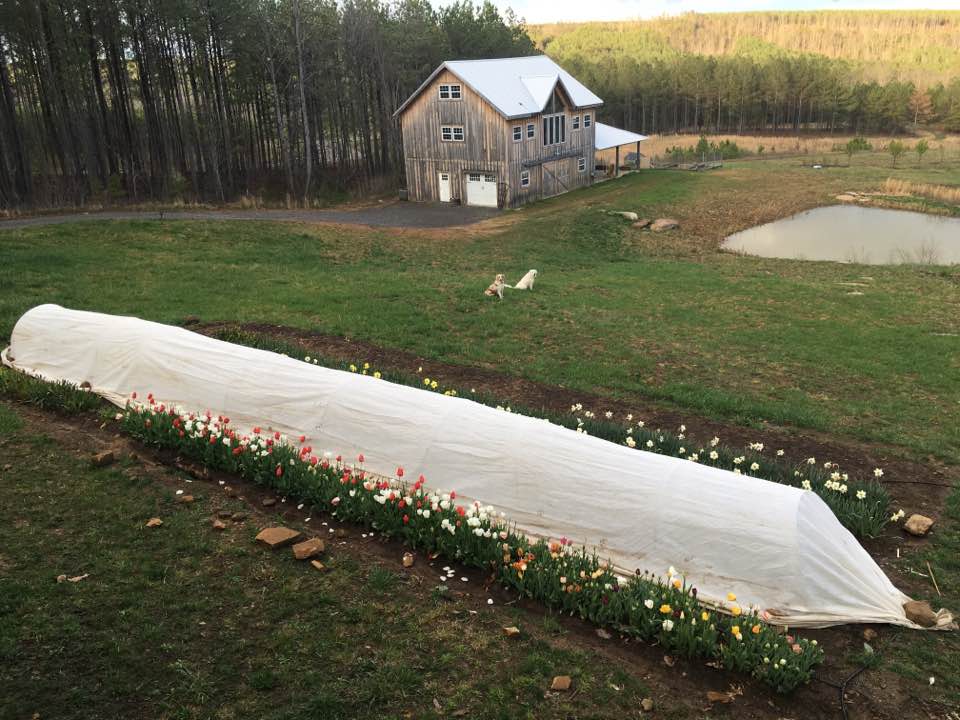
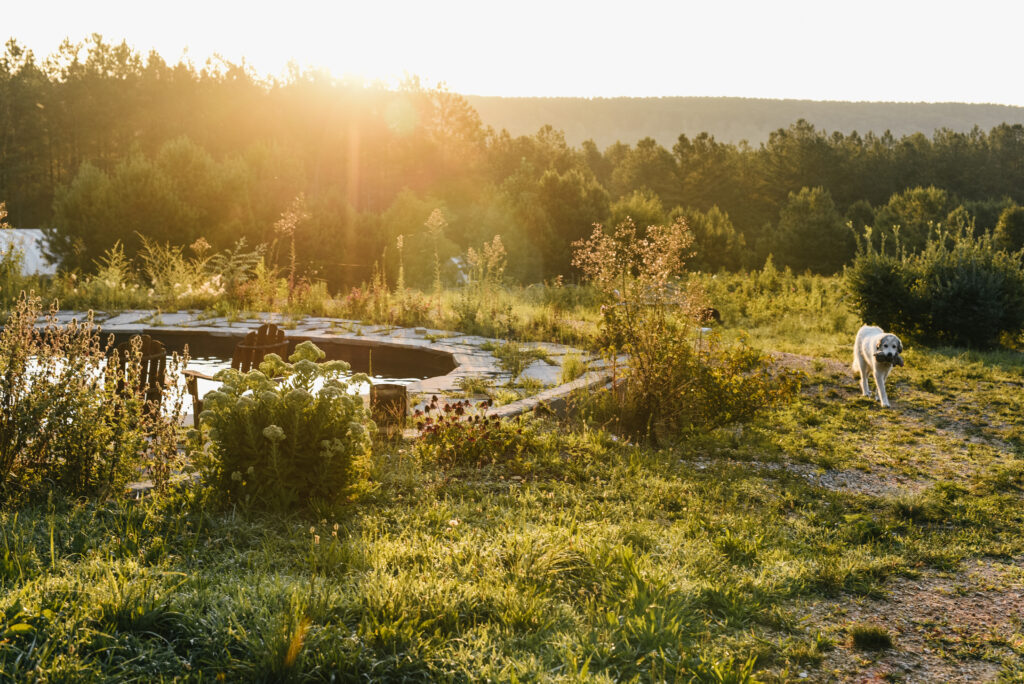
The truth is, many small farms fail. It’s so hard to compete with big agriculture. Most of the flowers that you see in florist shops and grocery stores come from other countries where the labor is cheaper and the regulations for chemicals are questionable. They are in it for profit. Making a career from having a small farm is so much work, but the reward is so worth it to us.
On Instagram, we asked you all what questions you had about the farm… We are answering 5 rapid fire questions down below. Before we get to the final part of our blog post, we must end with our sincerest thank you. Your support is why we are still able to farm and remain profitable. Thank you every day but especially on this special day.
Rapid Fire Instagram Q & A
Can I volunteer on your farm?
Yes! Click here to fill out this form. We are happy to have you!
Do you allow photographers on the farm?
For now, we don’t allow photographers. If we’re doing our jobs right, the fields aren’t actually very colorful for long because all the blooms are in our buckets. We get these inquiries every so often and we’ve done it before because sometimes the stars align and there’s another reason why we may hold off on harvest for the next day or two. But that has been extremely rare. More in the next question…
What time do your farm days start?
Around 6-7 am right as the sun starts to rise. We harvest this early, especially because we bring our blooms to our Joli Jardin shop in downtown Chattanooga at 1263 Market St!
Do you offer farm tours?
Not right now, but maybe in the future. Check out our events page to keep an eye out for an open farm day this year. Come visit then!
What do you do during the winter on the farm?
We receive this question quite a bit! Winters on the farm are actually so important to prepare for flowers in the spring! Our team is busy weeding, measuring, sowing and tending snapdragons, poppies, foxglove and more. Good idea for a future blog post!
